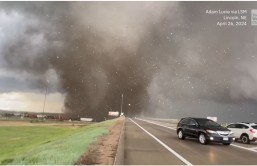You know that feeling when you learn something that was once hard to find was located directly under your nose the entire time? Well, it turns out militias in the Middle East have experienced that feeling after learning they don't need to go any farther than Facebook and other social media platforms to get their hands on weaponry.
We're not talking simple handguns or combat knives either. Serious weaponry distributed by the United States to security forces and their proxies in the Middle East like grenades, heavy machine guns and even guided missiles could be discovered in online bazaars using Facebook.
This startling discovery was revealed through a study by the private consultancy Armament Research Services about arms trafficking on social media in Libya. It documented 97 attempts at unregulated transfers of various weaponry through several local Facebook groups since September 2014.
"Online illicit arms markets are still in their infancy in the Middle East and North Africa region, and may continue to develop in both technical sophistication, and the variety and volume of small arms or light weapons offered for sale," according to Armament Research Services' Small Arms Survey.
The New York Times also conducted similar research to identify arms trading on Facebook in countries like Syria, Iraq and Yemen.
The issue here is that not only are these online bazaars are in direct violation of Facebook's recent ban on private weapon sales, but they also have been appearing where ISIS has its strongest presence.
That ban in question was created by a push toward enabling quicker and easier payment through its site.
"Since we were offering features like that, we thought we wanted to make clear that this is not a site that wants to facilitate the private sales of firearms," said Facebook's Monika Bickert.
However, even with that ban in place, there are extreme limitations in its enforcement. Namely, Facebook relies on its users to report the activity before it takes action. For example, Facebook removed six of seven Facebook groups that appeared to be hubs for arms trading, but only after the Times brought them to the company's attention. Under normal circumstances its unlikely that Facebook would ever be made aware of such locations on its own network.
That isn't to say the ban hasn't been effective in curbing the sales; it has - to a degree. The report does notes that weapons traders have faced more difficulty using online platforms like Facebook due to new policies or site moderation but concluded that the market still remains viable.
"The marketplaces are still made up of individuals selling goods to buyers who want them," according to the report.








